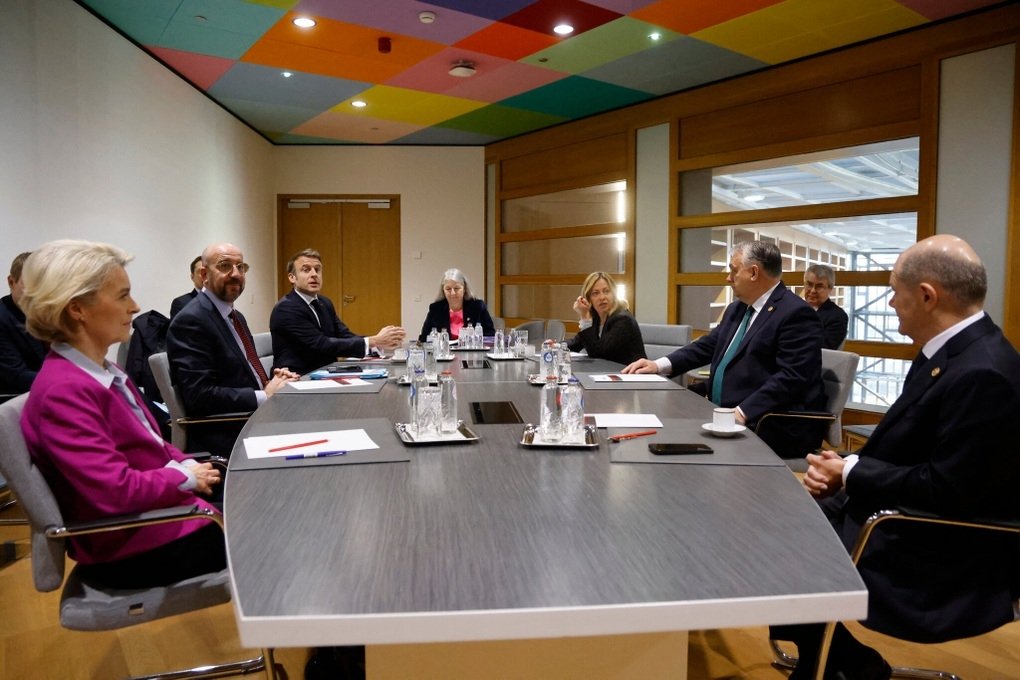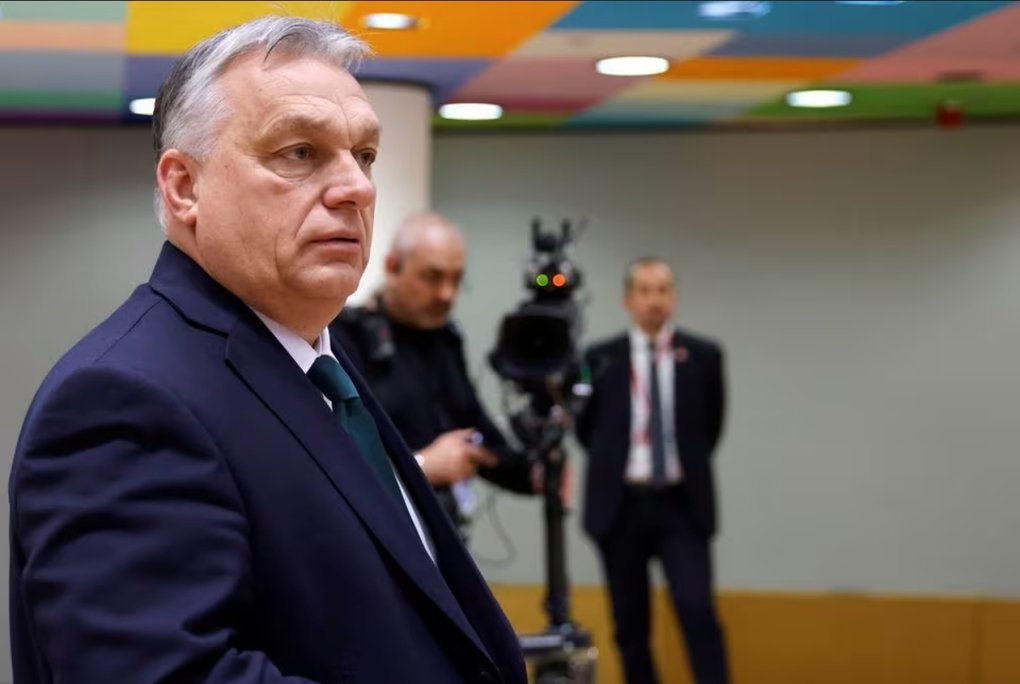(Dan Tri) – To convince Hungarian Prime Minister Viktor Orban to stop obstructing the EU’s 50 billion euro aid package for Ukraine, EU leaders joined forces to give him a clear message.
Hungarian Prime Minister Viktor Orban attended the European Union summit in Brussels, Belgium on February 1 (Photo: Reuters).
In the past, Hungary’s veteran leader has shown an adept ability to gather like-minded people in Europe to gain the initiative in negotiations with the EU.
But in the days before the special summit on February 1 in Brussels, 26 EU leaders united to send a tough message to Mr. Orban: Hungary will face consequences if it continues to block aid.
The February 1 breakthrough has important implications for both Ukraine and the EU.
To pressure Mr. Orban, the EU uses the `punch and rub` strategy.
For example, in a call on January 29, European Council President Charles Michel informed Mr. Orban that the EU would not allow the Hungarian Prime Minister to reserve the annual veto on aid to Ukraine.

Ukrainian soldiers train before going to the front line in Kharkiv province of Ukraine in December 2023 (Photo: New York Times).
Mr. Michel then warned that the EU could offer a `nuclear option`.
On the evening of January 31, Mr. Orban met with Italian Prime Minister Giorgia Meloni, his friend with the same right-leaning ideology, at a 5-star hotel in central Brussels.
Sitting in a velvet armchair with a bottle of champagne next to her, Ms. Meloni pointed out that Mr. Orban would benefit more from the EU if he cooperated and that now was not the time to be tough.
After that, while French President Emmanuel Macron continued to appease Mr. Orban with proposed concessions related to the content of the joint statement after the conference, other leaders met separately to talk about the Hungarian leader.
During the meeting, Mr. Michel, Dutch Prime Minister Mark Rutte and German Prime Minister Olaf Scholz confirmed that there would be no benefit from delaying aid to Ukraine.
The content of that meeting was then transferred to Mr. Orban.

Hungarian Prime Minister Viktor Orban (second from right) during a meeting in Brussels on February 2 (Photo: AFP/Getty).
Warning of economic blow
Close to the summit, through closed meetings or leaks to the press, some diplomats and officials continued to increase pressure by warning that the EU could strike more blows.
Some people don’t believe the EU will go that far.
Ultimately, Mr. Orban was forced to abandon his main demands, including that the four-year aid package should not be part of the EU’s common budget and that he should have an annual veto.
In addition, Mr. Orban could not force the EU to commit that it would disburse funds to Budapest that were frozen due to concerns about democratic standards and the rule of law in Hungary.
However, the Hungarian Prime Minister still affirmed that he had won the debate with the EU.
`Mission accomplished,` Mr. Orban wrote on social networks.
The European Union also appeared to prevail.
`The European Council reaffirms Europe’s firm commitment to stand with Ukraine,` said European Commission President Ursula von der Leyen.
